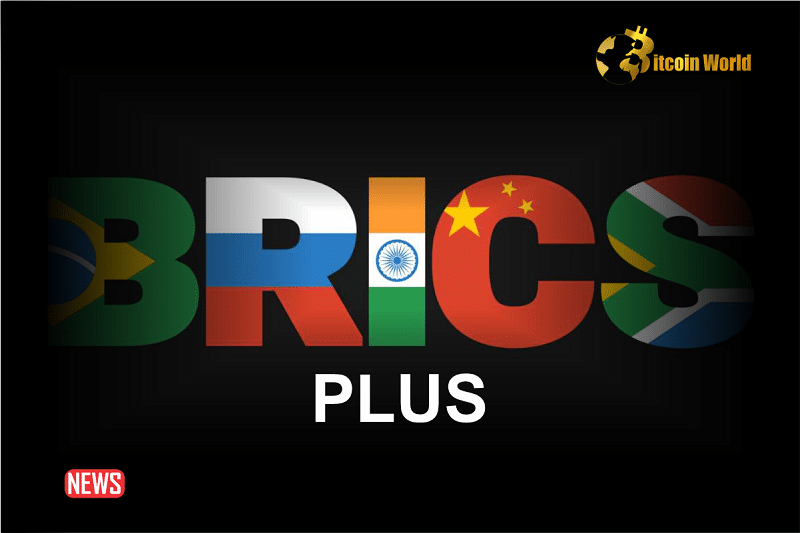The global stage is witnessing a significant power shift as the BRICS economic alliance, initially composed of Brazil, Russia, India, China, and South Africa, prepares to welcome five new members in early 2024. This expansion is not just about adding numbers; it’s a strategic recalibration of global dynamics, signaling a move towards a more multipolar world. Ready to understand who’s joining the BRICS club and what it means for the future? Let’s dive in.
Currently, the BRICS alliance is on the verge of a major transformation. Imagine a team of influential countries deciding to expand – that’s precisely what’s happening with BRICS. Five significant nations are preparing to become part of this bloc, promising to amplify its global reach and influence. Which countries are we talking about?
- Iraq: Seeking economic diversification and de-dollarization.
- Nigeria: Aiming for a stronger voice in African and global affairs.
- Turkey: Looking to solidify its regional leadership in the Middle East.
- Mexico: Potentially pivoting towards new economic alliances in the Americas.
- Pakistan: Desiring diversified partnerships and global player status.
This expansion is a clear indicator that BRICS is gaining momentum and appeal on the world stage. It’s a move that challenges the existing global order and paves the way for new forms of international collaboration.
But what exactly do these new entrants bring to the table? Each nation offers unique strengths, enriching the BRICS alliance and enhancing its capacity to shape global trade, economic policies, and international politics. It’s a testament to BRICS’s growing importance and its commitment to reshaping the global economic landscape.
See Also: Nigeria Has Expressed Interest To Join The BRICS Economic Alliance As Argentina’s Replacement
Expanding Horizons: What Do New Members Bring to BRICS?
Iraq’s Strategic Move: De-dollarization and Economic Upliftment
Why is Iraq interested in BRICS? For Iraq, joining BRICS is a strategic step towards economic recovery and reducing reliance on the US dollar. The rising dollar has presented economic challenges, and Iraq is looking for solutions through trade in local currencies.
By aligning with BRICS, Iraq aims to tap into the alliance’s de-dollarization agenda, hoping to boost its economy and foster growth. Moreover, Iraq’s rich natural resources are a significant asset, making it a valuable addition to the BRICS alliance, promising mutual benefits for all.
Nigeria’s Quest for Global Influence: A Louder Voice on the World Stage
Nigeria, Africa’s most populous nation and a major economic force, sees BRICS membership as a way to amplify its global voice. Joining BRICS in 2024 is about more than just economics for Nigeria; it’s about enhancing its foreign policy and economic influence on the African continent and beyond.
While Nigeria’s stance on de-dollarization isn’t explicitly stated, its presence in BRICS could strategically strengthen its position in international affairs and trade.
Turkey’s Regional Ambitions: Solidifying Leadership in the Middle East
Turkey’s potential inclusion in BRICS is about solidifying its position as a key regional leader in the Middle East and North Africa. Having been on the fringes of previous BRICS expansions, Turkey’s growing regional influence makes it a strong contender for the 2024 intake.
Furthermore, considering Turkey’s sometimes strained relationships with Western nations, closer ties with BRICS countries could offer increased geopolitical leverage and alternative partnerships.
Mexico’s Potential Pivot: Exploring New Economic Horizons
Could Mexico join BRICS despite earlier hesitations? It’s a possibility that’s still on the table. For Mexico, a significant player in the Americas, BRICS membership could unlock access to larger global markets and enhance its negotiating power in international forums.
A crucial factor for Mexico would be adopting BRICS’s proposed trading currency, which would signal a major shift in its economic alliances and trade strategies.
Pakistan’s Formal Application: Diversifying Alliances Amidst Geopolitical Crosscurrents
Pakistan has formally applied to join BRICS, indicating a strong desire to diversify its international partnerships and strengthen relationships with key global players. Pakistan’s existing relationship with Russia could be an advantage in its BRICS bid. However, India’s position presents a geopolitical complexity.
Despite these challenges, the broader BRICS community seems receptive to further expansion, suggesting that Pakistan’s inclusion is still a possibility, despite the intricate geopolitical landscape.
See Also: Pakistan Makes Surprising Move To Join BRICS
Reshaping Global Alliances: What’s the Bigger Picture?
The anticipated addition of these five countries to BRICS in 2024 is more than just an increase in membership. It signifies a fundamental reshaping of global alliances and economic strategies. These nations, each with their unique strengths and challenges, are set to play a crucial role in BRICS’s overarching goal of establishing a more balanced global economic order.
The 2024 BRICS expansion is poised to redefine international relations, opening up new avenues for global cooperation and development. As these countries become integrated into the BRICS framework, the alliance will undoubtedly strengthen its position as a major force in global economics and politics. This evolving landscape challenges established norms and presents fresh opportunities for growth and collaboration in an increasingly multipolar world. Keep watching this space – the BRICS story is just getting more interesting!
Disclaimer: The information provided is not trading advice, Bitcoinworld.co.in holds no liability for any investments made based on the information provided on this page. We strongly recommend independent research and/or consultation with a qualified professional before making any investment decisions.




